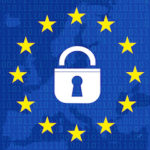Dutch researcher Geert Hofsted is a pioneer in the study of organizations, the person who, according to The Economist magazine, “put corporate culture on the map — almost literally.” Hofstede studied differences in IBM employees in 40 different countries and created a system that scores cultures based on four components (a fifth was later added). Itim International has created the apps CultureGPS for iPhone and Culture Compass for Android, allowing users to compare countries based on Hofstede’s five categories:
Individual versus collective (IDV) Do individuals look after the welfare of themselves and their immediate families (a high score), or are there larger frameworks in which people belong to families, clans, or organizations that look after them? (The United States scores 91 out of 100; the Netherlands scores 38.)
Power distance index (PDI) Is there an accepted hierarchical order and limited social mobility (high score), or is equality seen as a goal of the culture? (Panama scores 95, compared with New Zealand, 22.)
Uncertainty avoidance index (UAI) How threatening is ambiguity or failure, and how important is it to follow the rules (high score)? Or is more flexibility and acceptance of dissent allowed? (Japan scores 95; the United States, 46.)
Masculinity and femininity Are the dominant values of the culture tied to achievement and success, which in the model is defined as masculine (high score), or more oriented toward the perceived feminine values of cooperation? (Italy scores 70; Sweden, 5.)
A fifth dimension was later added to the index, based on research in East Asian countries:
Long-term orientation Is there a short term view focused on quick results, or a future-oriented view?
Kwintessential, which provides translation as well as cross-cultural business training, also has created an app based on Hofstede’s research. Called Compare Cultures, it allows users to compare more than 70 countries and regions on the first four dimensions. A second app, International Business Etiquette, provides information about religion, hospitality, greetings, communication styles, and business meetings.



